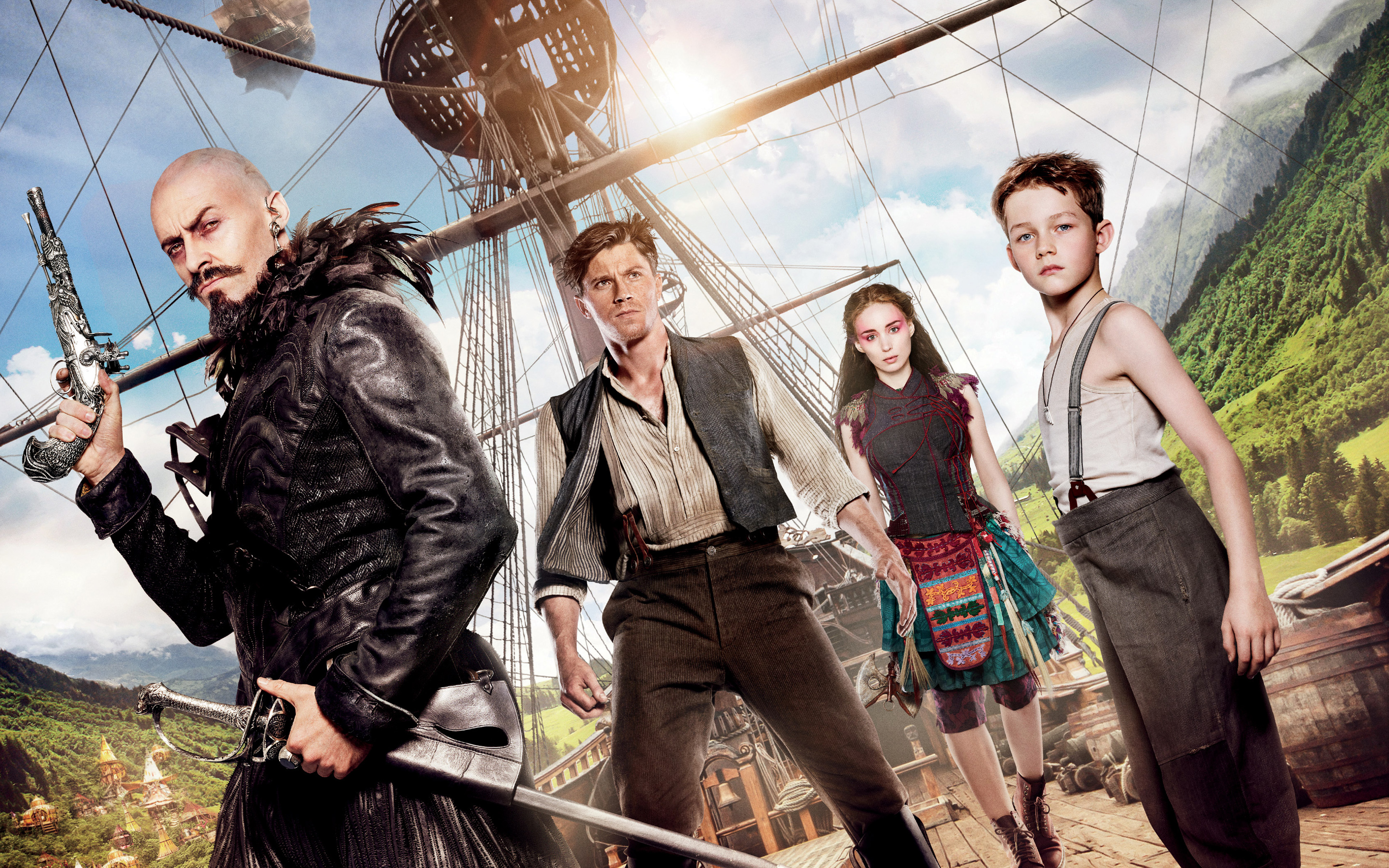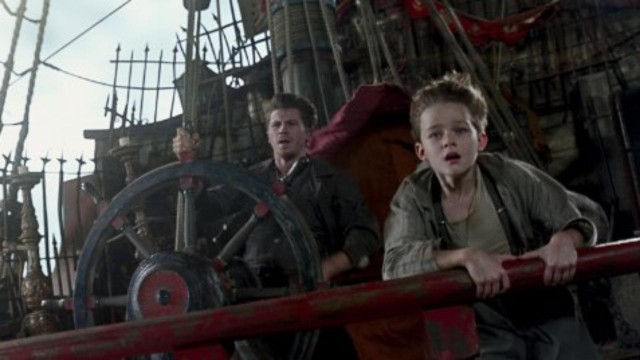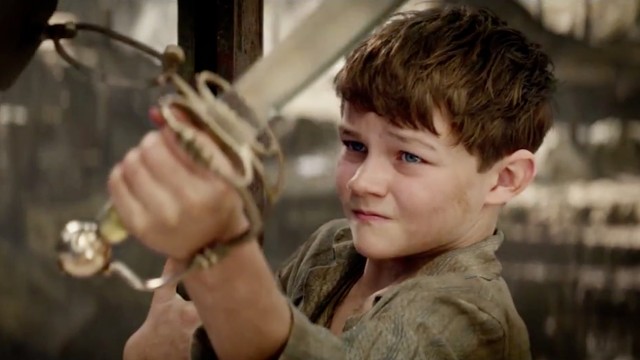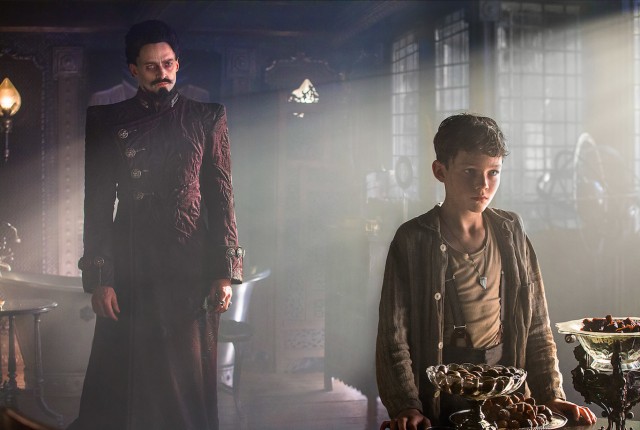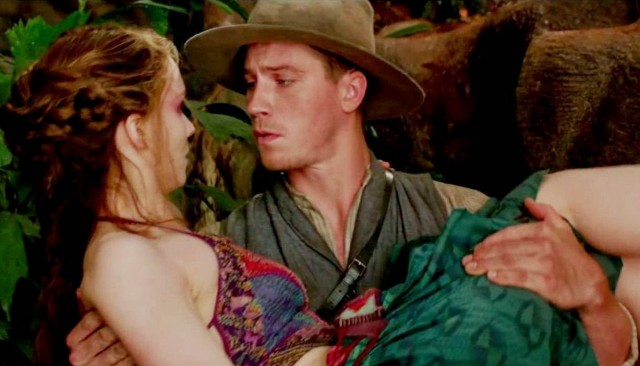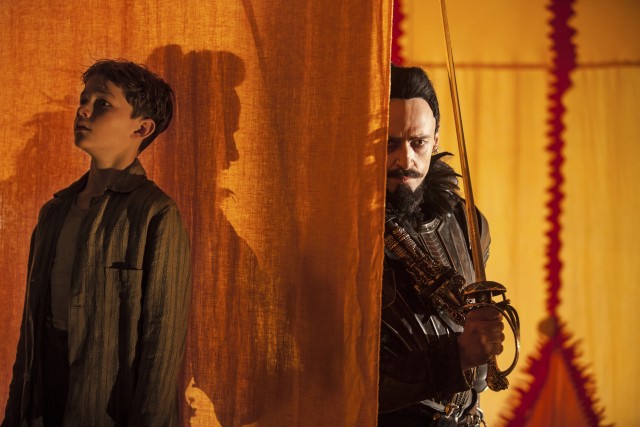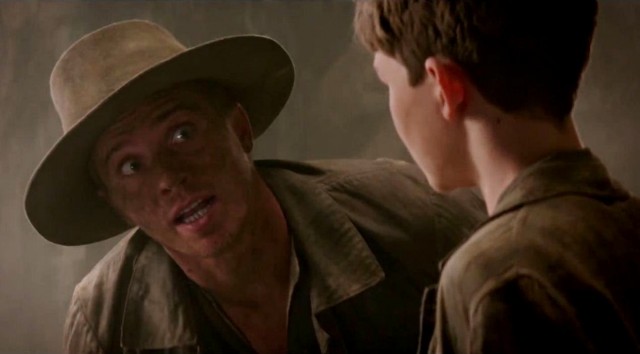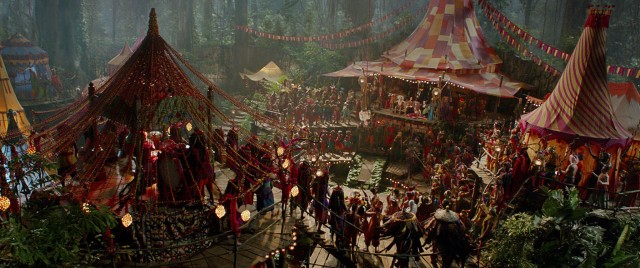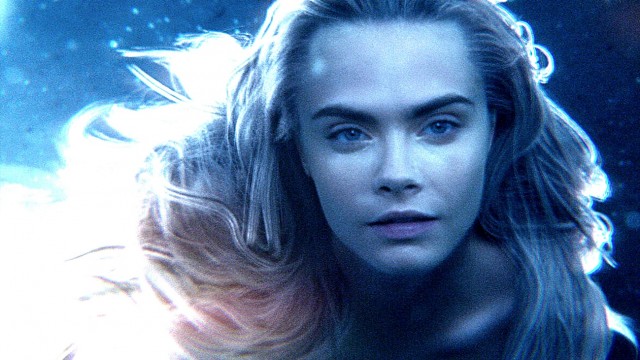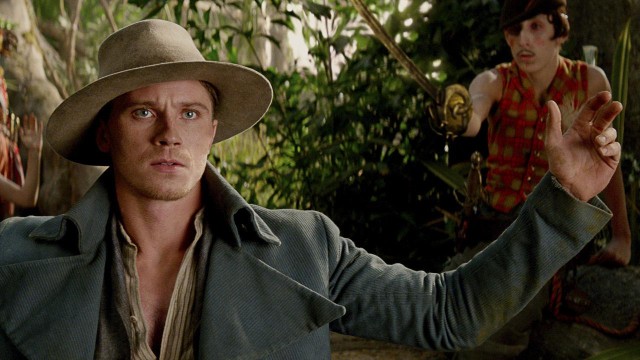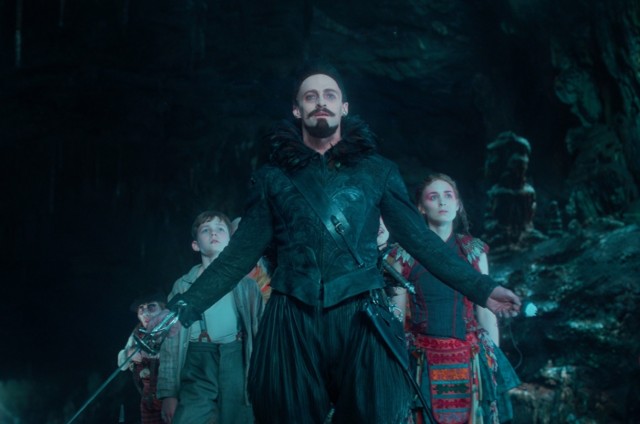There have been plenty of tellings and re-tellings of J.M. Barrie’s classic story, best known today as Peter Pan. Some of these re-tellings have been quite amazing, while others have been… Unfortunate. This applies to both the inner and outer workings of Hollywood, with more than enough movies inspired by Peter Pan to go around, including a biopic for J.M. Barrie, no less!
The latest attempt to re-tell the story of Peter Pan for the big screen comes from Hanna director, Joe Wright, delivering a movie that goes even further back in the timeline, to show how Peter Pan actually became a legendary hero, despite humble beginnings as an ordinary orphan boy that didn’t even live in Neverland. Yep, Hollywood is still head-over-heels in love with heroic origin stories, so here’s another one, after Pan ended up getting enough attention to move forward, on account of being featured on 2013’s Black List of well-liked unproduced screenplays, according to Hollywood pundits. Ironically, Wright’s Hanna also ended up on the Black List before it successfully released to the public.
Despite Pan originally being planned as a big Summer blockbuster this year however, sporting a huge $150 million budget, and booking good cinematic real estate in June, the movie ended up being delayed to October, following a composer change, and some issues with post-production. That’s the first red flag in a series of many more that begin to unfold as soon as the movie’s first ten minutes. Hanna may be awesome, but Pan… Well, Pan is unfortunate.
Pan is at least well-produced, and generally looks great, but it has a heap of issues within the characterization and storytelling, which end up thematically sinking the whole production. Even avid fans of Peter Pan will probably be significantly let down by Pan, which, beyond its lively visuals, sadly feels dead-on-arrival. Chances are, you have better things to do than sit through another by-the-book origin tale that clumsily fills in a point of canon that nobody probably cared about to begin with.
Pan obviously has a lot of love for the lore of Peter Pan, to the point where it sometimes becomes downright annoying about referencing events to come, which audiences no doubt already know about. Despite that however, its personalities feel strangely off, even for Neverland standards, and there just isn’t enough context between this new re-telling of established personalities, and how we come to understand them later, during the proper events of Peter Pan.
To illustrate what I mean, take for example, Garrett Hedlund’s James Hook, the future arch-nemesis of our young hero. In Pan, Hook is not a pirate. Hook doesn’t even have a hook hand. Instead, Hook is more of a devil-may-care cowboy who is among the many victims of villain, Blackbeard’s fairy dust mining operation, not remembering nor caring where he came from. The only thing that’s consistent about Hook from Peter Pan lore is that he’s afraid of crocodiles, only in Peter Pan, it was because a crocodile ate his hand. In Pan, it’s because… A crocodile ate his hand in the future, I guess. This is what I mean. If you want Hook to not be a pirate yet, fine. If you want Hook to be an ally to Peter to start, fine. What’s not fine however is referencing and nodding to events that haven’t happened yet, simply to lazily tie in to the source story, for its own sake. Foreshadowing is ok. Providing character nods to a personality’s future self in a prequel that have no linking context, is sloppy.
This same issue crops up with Tiger Lily, who is controversially played by Rooney Mara, a Caucasian woman. I’m not going to touch the racial politics of this, and I’m just going to address the character and performance for what they are. Mara is… Fine, in this part. She does what she can with the material, and she does make for a solid action heroine. There’s even a slight, albeit awkward romantic arc with Hook that has a handful of charming moments, especially since Mara and Hedlund seem to have decent chemistry. Again though, Tiger Lily feels too disconnected from the lore of Peter Pan, yet incessantly nods to events of the future, just like Hook’s character. Between Hook and Tiger Lily, it feels like Pan can’t decide if it wants to be faithful to the Peter Pan events as we know them, or completely up-end the events of Peter Pan with a new origin that totally changes the canon of the more established story. It tries to do both, and it just makes for character work that feels confused and frustrating.
By far the character worst off from the movie’s clumsy script however is Peter himself, played by relative newcomer, Levi Miller. Miller has a good amount of talent for a young actor, but he really got the short end of the stick with this script. Miller is left to confusingly play a flat, inconsistent pre-Pan Peter who goes from being a weak-kneed innocent to a defiant naysayer as the script demands, sometimes even in the same scene! It’s yet another instance where Pan is unable to commit to either laying a wholesale foundation for the story we already know, or completely altering said story from the ground up. The result is a bland hero that completely fails to evoke his legendary future namesake, albeit through no fault of Miller, who tries to work with what he can.
Since Hook is not a pirate, and there’s not even any evidence of his future turn to villainy as the credits roll (I call that Phantom Menace Syndrome), we instead have another well-known pirate, Blackbeard to serve as our villain. Why is Blackbeard in Neverland? We don’t know. Is this the same Blackbeard as the one known from our real-world history? We don’t know. Blackbeard is just kind of… There. He’s a typical super-villain who is mining fairy dust to ensure his immortality and rule over Neverland for… Reasons.
You have to give credit to Hugh Jackman however, who does manage to liven up an otherwise thankless, almost embarrassingly goofy part, throwing himself into the role with admirable gusto. Jackman is clearly having a ball, wisely not bothering to take the character seriously, and his performance feels reminiscent of Helena Bonham Carter’s Red Queen from Disney’s live-action Alice in Wonderland movie, another bright spot in another otherwise sub-par fairy tale revision. Jackman owns much of the movie, even as he’s forced to participate in a whole lot of ridiculous scenes, with a dubious highlight being Blackbeard forcing his miners to sing anachronistic pop ballads like, “Smells Like Teen Spirit” and, “Blitzkrieg Bop”, which shouldn’t exist yet in the movie’s WWII-era setting. Why are those songs being sung early in Neverland? Are we meant to infer that Blackbeard invented them? How did they get to Earth to be played by well-known bands of the time then? Context! Do you speak it, Pan?!
There are a couple of other big names thrown in, but none of them really resonate in the end. Amanda Seyfried is completely wasted in the role of Peter’s mother, and it’s easy to get the sense that she had several scenes chopped out of the final cut of the movie. Likewise, Cara Delevingne shows up in an uncredited role as the mermaids, who all have the same face for some reason, but she doesn’t even speak, so, there’s no real point to her. Adeel Akhtar also shows up as Smee, who is apparently a mining supervisor that gets roped along with Hook and Peter’s escape, though he’s pure comic relief, and his only personality trait is being a doormat. I guess that kind of fits for the character of Smee though, and in fairness, Akhtar is one of Pan’s more entertaining personalities.
Overall though, personalities in Pan tend to range from over-the-top to confused. Even characters like Hedlund’s brash pre-pirate Hook and Jackman’s ferociously ostentatious Blackbeard aren’t all that memorable for long. Everyone just amounts to a bunch of inconsequential noise that fails to offer any actual personality or magic by the time the movie is over.
Pan initially makes a valiant effort to stand apart, but due to its inability to commit to a direction with the more established Peter Pan canon, it ultimately flounders, and ends up being another tired, by-the-book Hollywood origin story, with little else to offer beyond some decent spectacle.
The movie starts out innocently enough, with an infant Peter being dropped off at an orphanage, but, like I said, it only takes about ten minutes to see that this movie has some noticeable fundamental issues. For whatever reason, the head nun of this orphanage is allowed to hoard everything from food to records, which, even in the 1940’s, makes no sense whatsoever, and that’s before it’s revealed that she apparently had some sort of deal with Blackbeard that allows her to ship off orphan boys to Neverland, and yet never get caught over the disappearances…?
See, already, Pan is raising too many questions, and we haven’t even gotten to Neverland yet! Somehow, flying pirate ships just appear over the streets of WWII-era London, just because, and they can just keep bringing boys to Neverland to help Blackbeard dig for fairy dust. What exactly does the evil nun get out of that arrangement? Wouldn’t a lack of orphan boys put her out of a job, especially during wartime? I don’t get it, and I doubt most anyone else will either.
Anyway, Peter ends up teaming up with an older miner named Hook, he narrowly escapes death at the hands of Blackbeard, and it turns out he can fly!… Sometimes. Apparently, Peter needs to learn to fly, because if he does, he can fulfill a prophecy that says a flying boy will help the natives save Neverland from Blackbeard!… But not from Captain Hook in the future, apparently.
Speaking of the future, part of Pan’s problem with its storytelling is that it seems to be one of those movies that thinks it can haphazardly leave the answers to vital questions for a sequel, even sequel-baiting pretty blatantly at the end. That of course blew up in the movie’s face, since it bombed at the box office, pretty much dooming a sequel before it could even try and get off the ground.
What’s left is a trite origin tale that hits all of the clichés that you could imagine, from the bland ‘chosen one’ protagonist, to the megalomaniacal villain, to the last-second save of an unreliable ally, to the supposedly very lost secret being hidden mostly in plain sight, which the characters were too dumb to figure out before the hero came along. On top of that mediocre foundation, the story of Pan just ultimately doesn’t come together, as it’s both faithful to and defiant of the original source material, which makes an already trite origin tale all the more dull and forgettable.
Joe Wright directs Pan with a clear amount of passion, and he seems to tap into his family background of puppet theater. Pan almost unfolds like a live-action puppet show, down to the exaggerated personalities and actions that help to accentuate Neverland’s fantastical feel. There’s a sense of pomp to the production, which is odd, since its personalities often feel so shallow, despite their own attempts at being showy, at least, in the case of Hook and Blackbeard.
Still, Pan is not without thrills, even if they’re few and far between at times. Even Wright’s direction can’t ultimately salvage things however, as he relies so heavily on cheap, random exposition devices, and yet also hammers home a whole lot of unanswered questions to sustain a fantastical intrigue that the style really could have done on its own, had the story been better.
Wright’s numerous period dramas and costume dramas make him a perfect fit for a movie like Pan on paper, but the ambitious wardrobe doesn’t compensate for a lack of real excitement. Rather than feeling truly magical, Pan ultimately just ends up feeling odd more often than not, with Wright’s direction attempting a good sense of energy, but not to the point where it can override the uninspired storytelling.
A big part of Pan’s delay was on account of director, Joe Wright demanding a composer change, with John Powell being the final composer. Powell’s score has a decent sense of adventure, and while it’s not exemplary, it’s enough to carry the movie through its otherwise banal plot.
The problem with the sound doesn’t come from the score itself, but rather that it appears that Wright ordered a crank-up of the sound to try and prevent audiences from falling asleep during the movie’s slower points. This makes some of the action sequences and other such exciting moments feel annoyingly shrill, as if Pan is trying way too hard to get your attention.
Directors, take note. Making something louder does not immediately make it more engaging! It just makes it annoying when it’s done at the wrong points, and at the wrong tempo! Pan is a movie that clearly needed more restraint in the audio department, even if the fundamental audio is functional. It is no longer functional however when it’s needlessly blowing out your ear drums, simply because it’s (understandably) worried that you’ve gotten bored!
The visuals are easily the best thing about Pan, with the rather large $150 million budget at least going towards a lot of great costumes, compelling scenery, and what’s overall a solid take on a new live-action Neverland. Some of the CG is dodgy here and there, but the practical wardrobe and stunts definitely shine, and at least give the movie some sense of polish, even as the story creaks and crumbles around it.
Another pleasant surprise in Pan is that its 3D presentation is actually pretty good, and an unexpected high point in the movie, if you opt for the 3D cut. The 3D effects are well-rendered, nicely balanced, and they do give the movie an added sense of immersion, even enhancing several of the more atmospheric scenes and action scenes pretty nicely! If you’re really dead set on seeing Pan in theatres for whatever reason, I do recommend at least springing for the 3D cut, since it might actually make a theatrical trip worth it, barely.
Still, even the strong production values don’t ultimately salvage the movie. Pan looks great, and is at least easy to watch, but beyond its pretty face, it still doesn’t find many meaningful ways to engage the viewer. It feels like a waste of such a high budget, and some surprisingly strong 3D work. Had all of that visual panache gone into better writing and characterization, this movie might have really been something special for the Fall season!
Pan is a pretty hefty disappointment, and it fails to do the legacy of Peter Pan justice. Despite an attractive exterior and a strong lead cast, the movie is sunk by its banal storyline and flat personalities. The visuals may secure a slight air of enchantment, but there’s no magic whatsoever in the personalities and lore, both new and old.
As such, it’s really difficult to recommend Pan over far better October movies like The Walk or The Martian. Hollywood has no shortage of Peter Pan-inspired movies, and Pan is probably going to be forgotten amidst them before long. It feels like a colossal missed opportunity, since an origin story for its title character isn’t fundamentally an awful idea, even if audience interest in said idea is another debate entirely. Hell, Steven Spielberg’s 1991 movie, Hook even went in the opposite direction, making a Peter Pan sequel to solid effect, and that was over two decades ago!
Sadly, Pan feels like another failed attempt by Hollywood to build a revitalized franchise from a well-mined public domain property. It was a box office flop, for good reason, and sadly, despite teasing a sequel at the end, we’re probably better off just forgetting about this unfortunate misfire. It doesn’t matter how often you try and clap for it. There isn’t enough fairy magic in the world to properly bring Pan to life.

